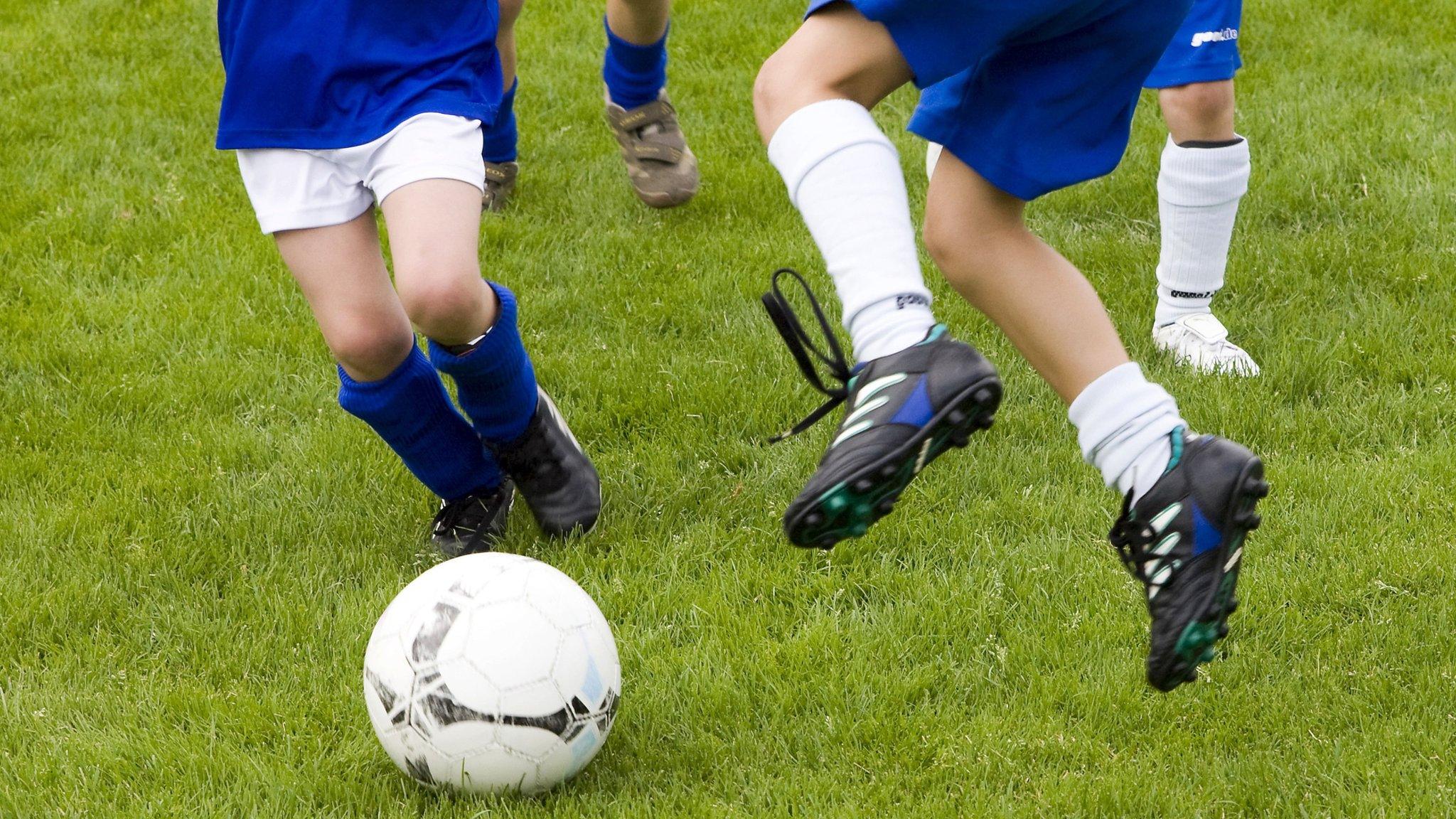How footballers' loved ones reacted to hearing of abuse
- Published
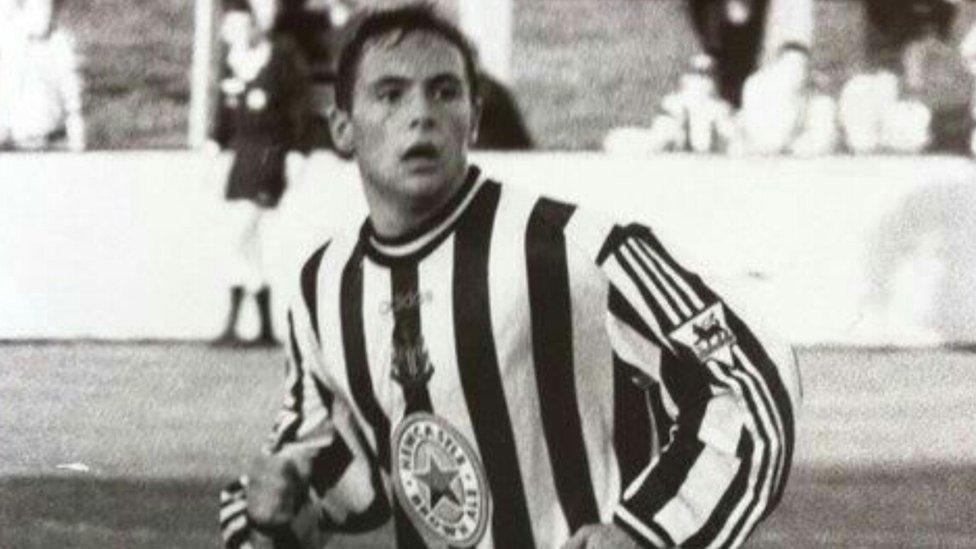
David Eatock said he had been groomed over a three-year period by coach George Ormond
Hundreds of footballers have now alleged that they were victims of sexual abuse as children, taken advantage of while following a path towards a dream career. For loved ones, hearing of the abuse came as a shock - but also made sense of any changes in personality they had seen.
"The last 20 years, he's been a shadow of the person he was. He's been hit with depression, anxiety and agoraphobia," Paul Eatock tells the BBC's Victoria Derbyshire programme.
He is describing the abrupt change he saw in his twin brother, David Eatock, after he signed for Newcastle United in 1995.
Last week, David waived his anonymity to claim he was abused by former coach George Ormond during his three years at the club.
He said Ormond - a convicted child sex abuser - groomed him between the ages of 18 and 21, and on one occasion sexually assaulted him.
David Eatock: "I literally just froze - could not speak with fear, with shock, with disbelief"
Paul says his brother first told him of the abuse a few years ago, completely out of the blue. But he did not discover the full extent of what he had been through until last week.
Naturally, it came as a shock, but also allowed him to make sense of David's mental health problems.
"Suddenly it all made sense - you wondered why he had these problems and now you could see why," Paul says.
"Other victims are coming out with the same experiences mentally - the scars they were left with."
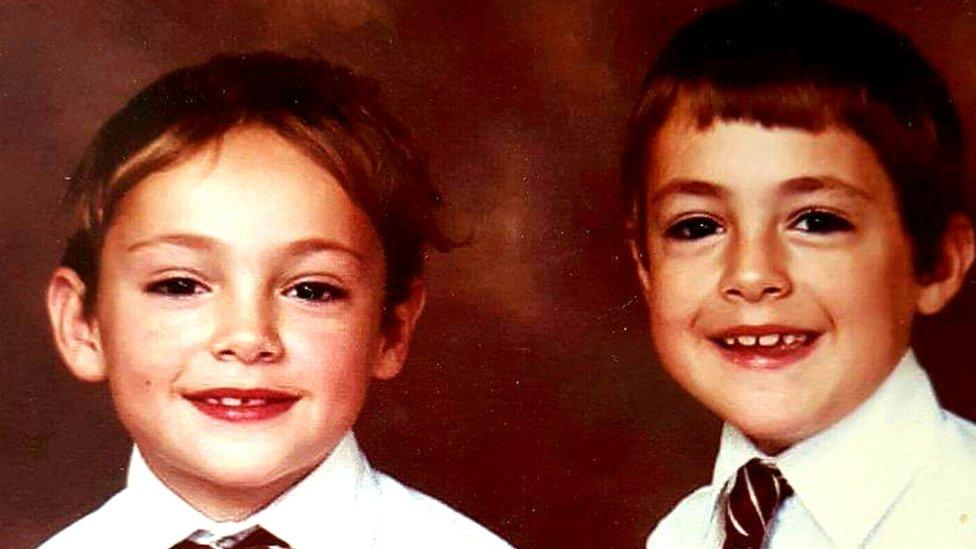
David and Paul Eatock at school
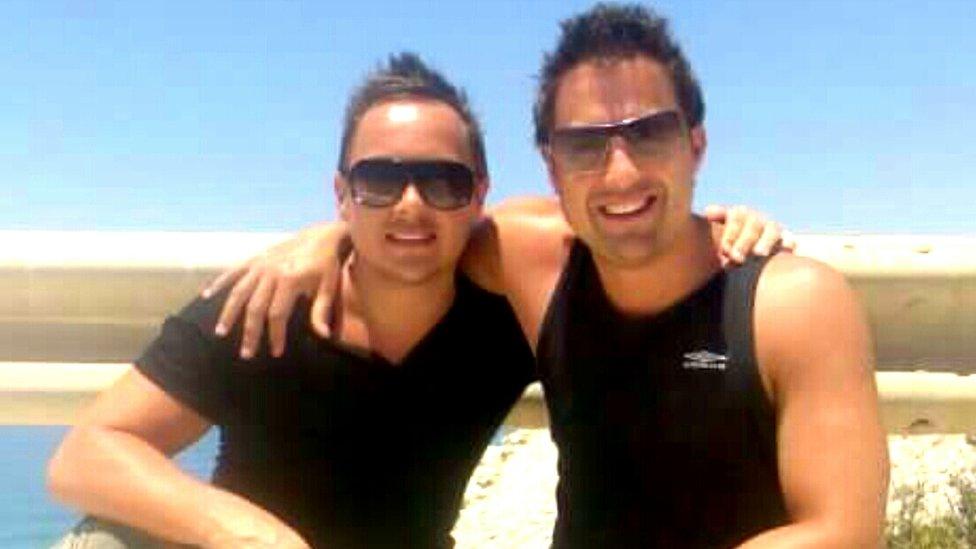
The brothers have remained close over the years
David told the BBC last week that he had left Newcastle United a "shell" of his former self.
But the effects of the abuse also took a toll on the family as a whole, his brother says.
"It's hard on all of us. Mum has been supportive, but it's been hard for her too," Paul says.
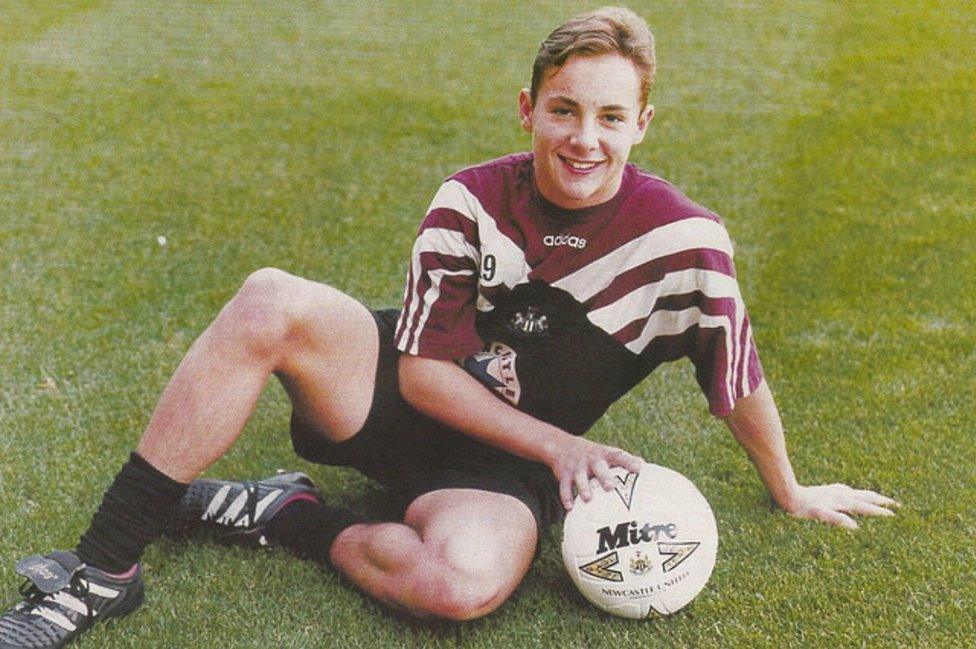
David Eatock signed for Newcastle United at the age of 18
"David has been in such a dark place, not able to come to family events and go out the house," he says. David had previously been unable to attend an event for his daughter's birthday.
"When you hear the reasons why, you feel angry that he's been taken advantage of," Paul adds.
David has now filed a complaint to the police, and hopes that by speaking out others will also come forward.
"I feel extremely proud of him talking out," his brother says. "It's a big thing he's done."

Find out more
The BBC's Victoria Derbyshire programme is broadcast on weekdays between 09:00 and 11:00 on BBC Two and the BBC News channel.

A total of 450 people have alleged they are victims, and 55 amateur and professional football clubs are linked to allegations of abuse going back several decades.
Matthew Monaghan claims he was abused by a coach as a young footballer.
His partner, Denise Wilkinson, says he first told of the abuse two years ago, when Matthew woke her in the middle of the night "confused" and "broken" - saying he had been abused and would not see her again.
They had been together six months at the time.
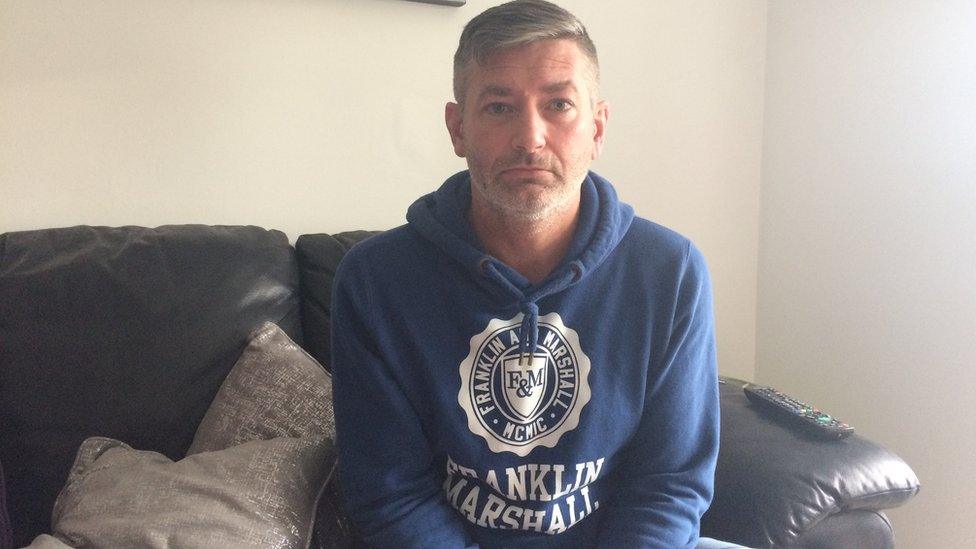
Matthew Monaghan told his partner Denise he was abused six months into their relationship
"He couldn't even look me in the eye. It was the shame I guess," Denise says.
"He said, 'I promised you and the children I'd come for Christmas, so I'll do that but not see you again.' I told him it didn't matter what he'd said, I would be there for him."
Denise says she remained strong for Matthew when he opened up, but "broke down" when she arrived at work.
"You can't even comprehend what the person you love has been through," she says.
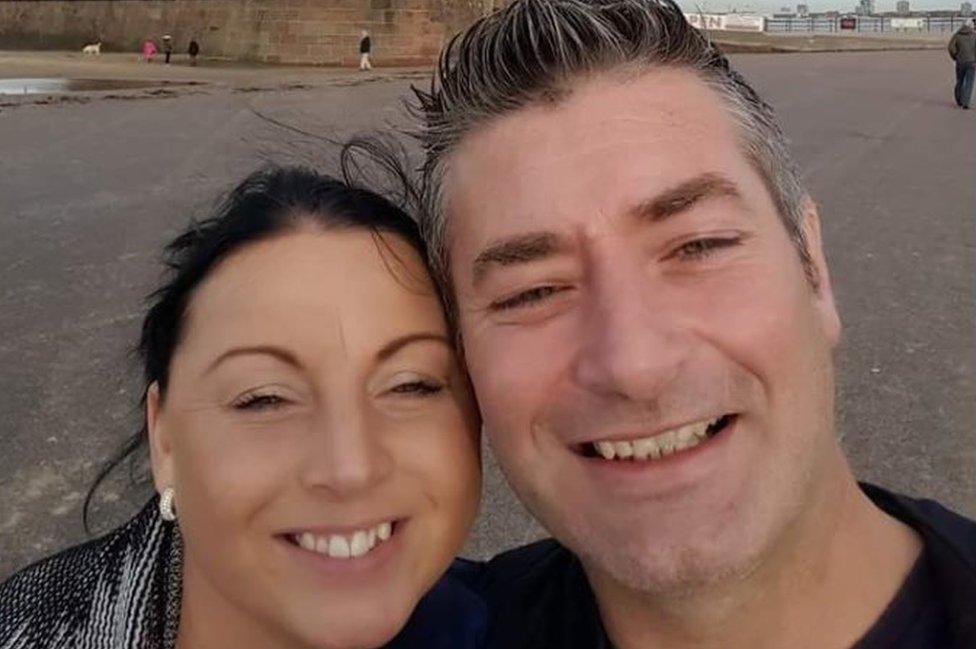
Denise and Matthew have been together for two-and-a-half years
It was Matthew's mother who urged him to open up to Denise, to help her understand some of the ways in which he acted.
Like David Eatock, he can find it difficult to attend events, and there have been times at restaurants where he has had to leave and sit outside on the pavement.
Over time, Denise says, Matthew has found it easier to talk to her about the abuse, and believes waiving his anonymity to speak to the press has acted as a form of therapy for him.
But he still suffers mentally as a result of what he has been through.
Denise says: "The nightmares are really prominent at the moment if he sleeps. If not, he's awake anxious."
Denise says Matthew still blames himself for the abuse, believing "I should have done this or I should have done that", despite her best attempts to comfort him.
In fact, she says: "He thinks he should be looking after me."
Over the past two years, Denise has learned to support Matthew as best she can, and has advice for the loved ones of victims who have opened up for the first time.
"Sit quietly and just listen to them," she says, "let them have their say, prompt them a little bit, but don't be shocked and look shocked. Don't be ashamed."
- Published1 December 2016
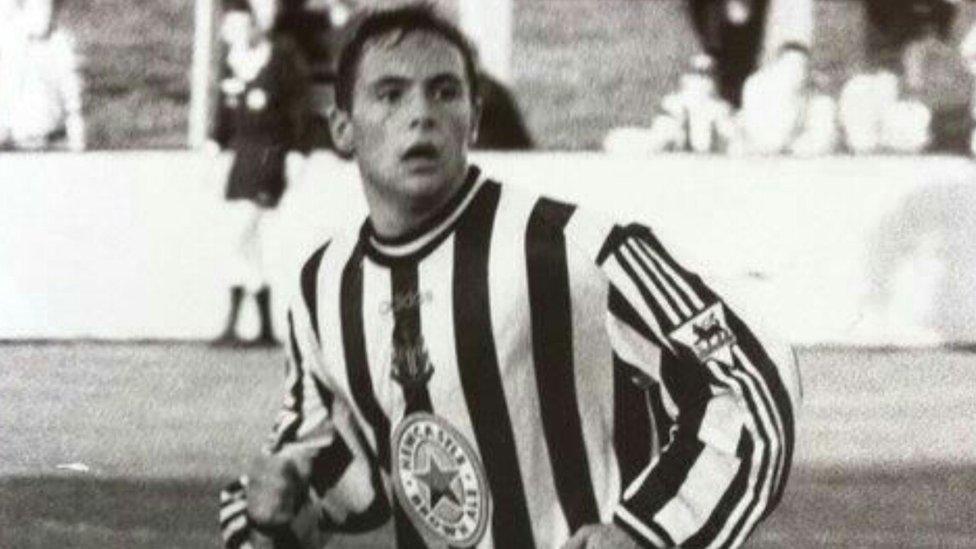
- Published29 November 2016
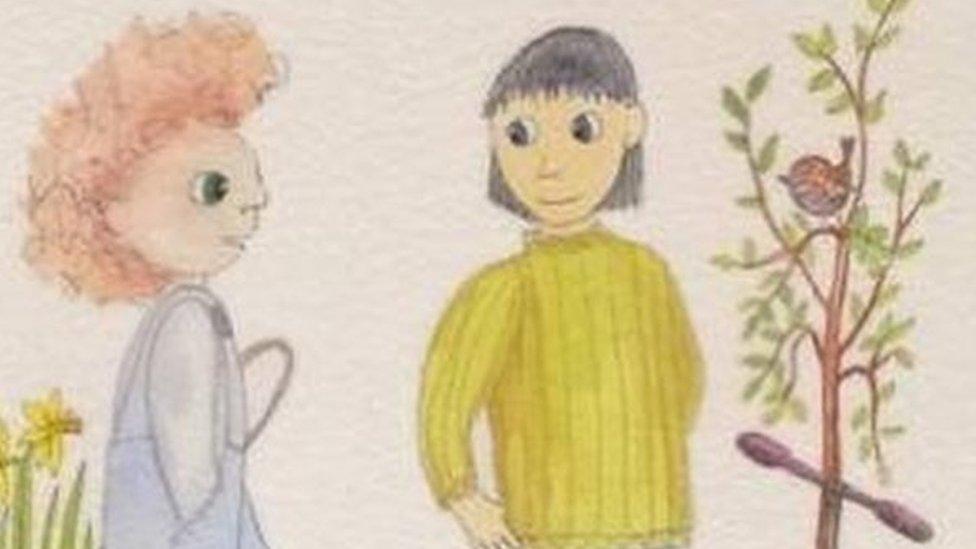
- Published3 December 2016
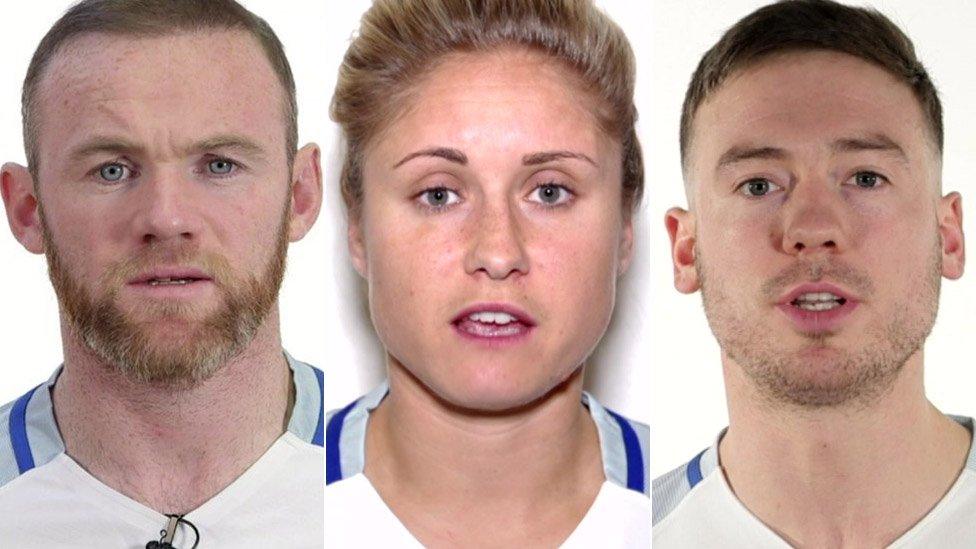
- Published30 November 2016

- Published1 December 2016
